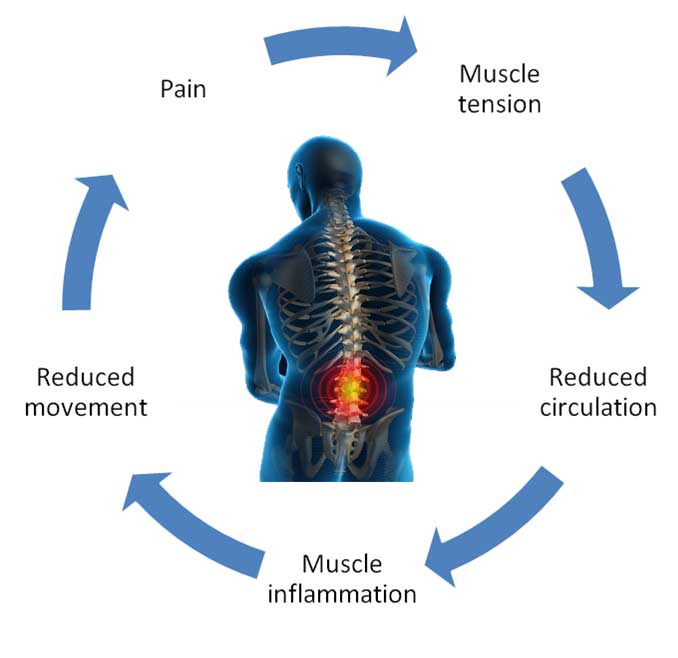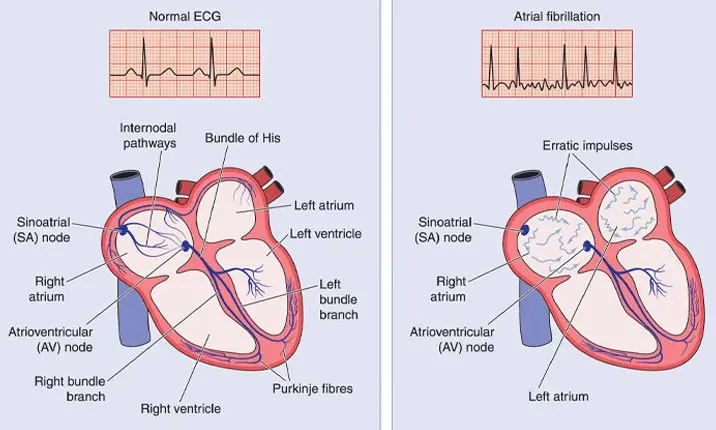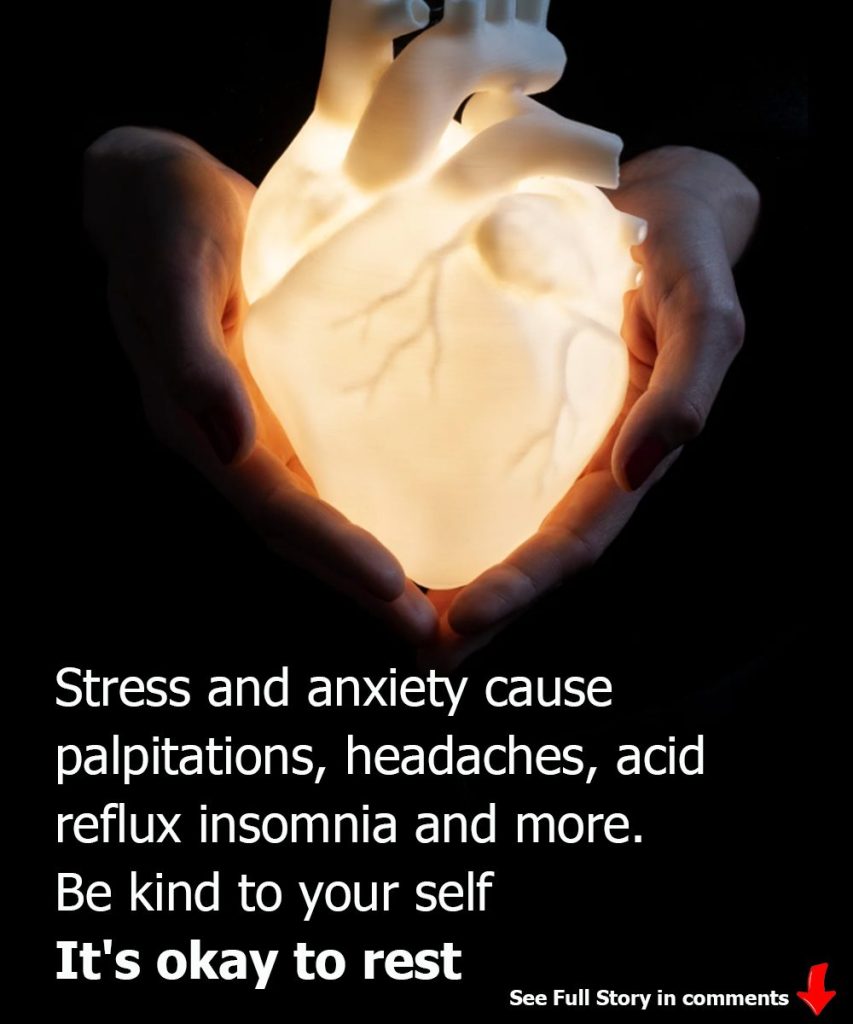In today’s fast – paced world, stress and anxiety are more common than ever. Whether it’s a tough job, a chaotic lifestyle, or trouble handling emotions, these things can really mess with your physical and mental health. Feeling stressed or anxious is normal when life throws challenges at you. But if these feelings stick around for a long time, they can cause all sorts of symptoms that affect how you feel overall.
In this article, we’ll look at 7 common symptoms caused by stress and anxiety. We’ll also give you practical ways to manage them. If you’re having any of these symptoms, you’re not the only one. It’s important to take action to cut down on how much stress and anxiety affect your life.
1. Muscle Tension: A Common Stress Sign

Muscle tension is one of the most common physical signs of stress. When your body’s under pressure, muscles, especially in your neck, shoulders, and back, tighten up. It’s a natural defense. Over time, this tension can build up and cause long – term discomfort or even pain.
Why It Happens
When you’re stressed, your body goes into “fight or flight” mode, getting ready to deal with danger. The muscles tighten up because of this. If the stress lasts, the tension stays.
Solution
Relaxation techniques like stretching, yoga, and deep breathing can really help with muscle tension. Regular exercise can also release stress in your muscles and make you more flexible.
2. Headaches: A Sign of Stress
Headaches, especially tension headaches, are another common stress symptom. These happen when the muscles in your scalp and neck tighten because of stress. It feels like there’s pressure around your head. Long – term stress can even lead to migraines, which can really ruin your quality of life.
Why It Happens
When you’re stressed, your muscles tighten. This can cause headaches. The tension in your neck and scalp gives you discomfort and a throbbing feeling. If you don’t do anything about it, it can get really bad.
Solution
Stress management, like meditation, regular exercise, and deep breathing, can help stop and ease headaches. Try to have a routine that includes relaxation to get rid of tension and calm your mind.
3. Digestive Problems: Stress Upsets Your Stomach
Your digestive system is very sensitive to stress. A lot of people feel nauseous, have diarrhea, constipation, or just general stomach discomfort when they’re really stressed. Stress can also make chronic problems like Irritable Bowel Syndrome (IBS) or acid reflux worse.
Why It Happens
When you’re stressed, your body sends energy away from things like digestion and uses it for the “fight or flight” response. This messes up normal digestion and can cause stomach problems.
Solution
Eating a healthy, balanced diet is really important for dealing with stress – related digestive problems. Stay away from too much caffeine, greasy foods, and things like alcohol that can irritate your stomach. Drink lots of water and eat smaller, more frequent meals. This can help your digestive system work better when you’re stressed.
4. Irregular Heartbeats: Stress Affects Your Heart

Stress and anxiety can make your heart beat irregularly. You might feel your heart racing or pounding. Usually, these palpitations aren’t a big deal in the short term. But if they happen a lot, they can lead to more serious heart problems over time, like high blood pressure and heart disease.
Why It Happens
Stress turns on your body’s “fight or flight” response. This releases stress hormones like adrenaline, which makes your heart beat faster. If you’re stressed for a long time, these palpitations can happen more often.
Solution
Regular exercise, good sleep, and stress management, like deep breathing, mindfulness, and meditation, can help keep your heart rhythm normal. Cutting down on things like caffeine and nicotine can also make a big difference in reducing palpitations.
5. Irregular Menstrual Cycles: Stress Messes with Hormones
Stress can really affect your reproductive system. It can make your menstrual cycle irregular or make you miss periods. Long – term stress can mess up your hormones and make it harder to get pregnant.
Why It Happens
Stress makes your body produce more cortisol. This can mess with other hormones that control your menstrual cycle. This imbalance can make ovulation late or make you miss periods.
Solution
Reducing stress and having a balanced lifestyle can help get your menstrual cycle back on track. Make sure you get enough sleep, eat a balanced diet, and find ways to relax. If your hormonal imbalance is really bad, you might need to talk to a doctor.

6. Sleep Problems: Stress Keeps You Awake
Long – term stress and anxiety can give you insomnia or make it hard to sleep well. When your mind won’t stop racing, it’s really hard to fall asleep. And not getting enough sleep can make your stress worse. It’s a never – ending cycle of not sleeping and feeling more anxious.
Why It Happens
Stress turns on your body’s sympathetic nervous system. This makes it hard for you to relax and fall asleep. Your mind is too active, so you can’t wind down and end up tossing and turning all night.
Solution
Having a relaxing bedtime routine is the key to better sleep. Don’t use your phone or computer before bed. The blue light from these screens can stop your body from making melatonin. Do calming things before bed, like reading, listening to soft music, or meditating. This can help your body get ready for a good night’s sleep.
7. Weight Gain: Stress Affects Your Waistline
Long – term stress and anxiety can make you gain weight, especially around your belly. Stress makes your body produce more cortisol, a hormone that makes your body store fat, especially in your abdomen. Also, stress can make you eat emotionally. People often turn to food to feel better when they’re stressed.
Why It Happens
When cortisol levels go up, your body starts storing fat. Stress can also mess with how your body controls your appetite, making you eat too much or choose the wrong foods.
Solution
Eating healthy and staying active can help stop stress – related weight gain. Regular exercise, like walking, yoga, or strength training, can help control cortisol levels and stop fat from building up. Eat balanced meals with all the nutrients your body needs. And don’t overeat when you’re stressed.
Conclusion: Manage Stress for a Healthier You
Stress and anxiety are part of life. But if you don’t do anything about them, they can really hurt your physical and mental health. The first step to taking care of yourself is to recognize the symptoms of stress and anxiety. You can reduce how stress affects your body by using stress management techniques, living a healthy lifestyle, and getting help from a professional if you need it.
Remember, you’re not alone if you’re feeling stressed or anxious. Take care of yourself. And don’t be afraid to ask for help if you need it. Your health is worth the effort!
